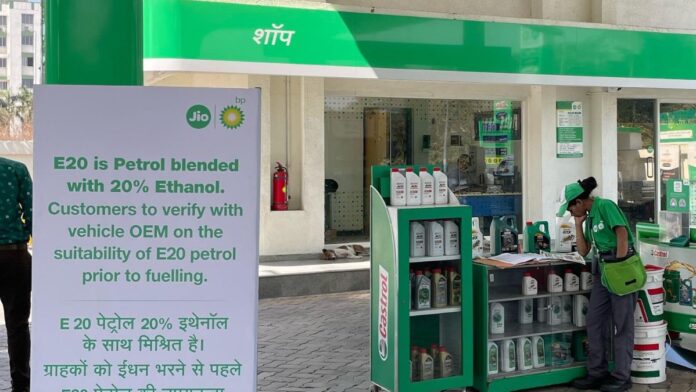India achieved 20% ethanol blending in petrol last month — marking a nearly 13x increase over the past 11 years. The milestone has garnered a mixed response, with many vehicle owners expressing concern about its impact on car performance. Top government officials have also come forward to debunk claims around vehicle safety and engine performance. Pricing of ethanol-blended fuel, however, remains a key flashpoint, with many noting reduced fuel efficiency while petrol prices remained unchanged.
What is the pricing controversy?
Ethanol-blended petrol is cheaper than the ‘purer’ versions used previously in cars — around Rs 61 per litre (including GST) versus approximately Rs 95 per litre in Delhi — which should theoretically lower fuel prices at pumps. Reports, however indicate that prices remain equivalent or even slightly higher in various parts of India. This is driven by various taxes (excise duty, VAT) and subsidy policies that do not fully pass on the lower ethanol cost to consumers. Some consumers also claim to be facing a significant decrease in fuel efficiency while using E20 petrol. This can make the effective cost per kilometer higher for vehicles and increase fuel purchases.
ALSO READGadkari calls out ‘petrol lobby propaganda’ over ethanol fuel use: ‘Show me one damaged car’
The Ministry of Petroleum and Natural Gas also issued a clarification earlier this week — noting that the blend had only a ‘marginal’ impact on fuel efficiency. A social media post added that mileage may drop by 1% to 2% for vehicles designed for E10 and calibrated for E20 while other vehicles could see a 3% to 6% drop. The government noted that the percentage could be reduced further with better engine tuning and use of E20-compatible parts.
Lower prices, tax breaks ‘to compensate’
A NITI Aayog report noted in June 2021 that a successful E20 program could save India approximately Rs 30,000 crore per annum and also offer “equivalent efficiency at lower cost than petrol”. It had also proposed that the retail price of such blended fuels should be lower than normal petrol “to compensate for the reduction in calorific value” and improve pan-India acceptance. It had also urged the government to consider tax breaks on ethanol as a fuel.
“In order to bring predictability and to encourage investment by entrepreneurs in expansion or new ethanol capacities, the government may devise and declare a floor price of ethanol for five years with an escalation clause for purchase by OMCs,”
» Read More


